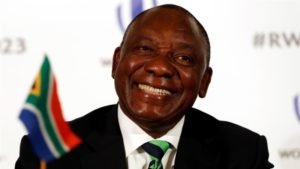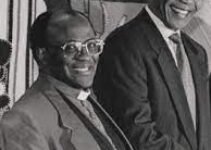As the sun paints the South African sky on April 13, the whispers of the past echo in the air. This date, like many threads woven into the nation’s vibrant tapestry, holds stories of immense significance. We embark on a journey of exploration, delving into the triumphs, tragedies, and turning points that mark April 13 in South Africa’s history, each event a testament to the resilience and spirit of the nation.

1996: Ramaphosa announces his decision to leave parliament
Cyril Ramaphosa, the former secretary-general of the African National Congress (ANC) and chairman of the Constitutional Assembly, resigned from Parliament to become deputy executive chairman of New Africa Investment Ltd (NAIL). Ramaphosa was a potential successor to outgoing president Nelson Mandela but lost to Thabo Mbeki.
1992: Nelson Mandela announces his separation from Winnie Mandela
Nelson Mandela and Winnie Madikizela-Mandela got married in 1958 and had two daughters. However, Mandela was arrested in 1962 and spent 27 years in prison. After his release, they reunited but eventually separated and divorced in 1996. Mandela then married Graca Machel in 1998.
1985: Mass funeral for those killed at Sharpeville commemoration
In March 1985, police killed between 20 and 43 demonstrators in Langa, a township on the outskirts of Uitenhage in the Eastern Cape. The demonstrators were observing the 25th anniversary of the Sharpeville massacre of 21 March 1960. On April 13, 1985, eighty thousand Blacks attended a mass funeral in KwaNobuhle township for the twenty-eight people killed by police. Members of ANC-aligned United Democratic Front (UDF) refused entry to members of competing organizations. Though there were small-scale conflicts between the mourning masses and the police, no large-scale confrontation took place. Langa township at Uitenhage is not to be confused with the township of the same name in Cape Town, which is known for the anti-pass march held there on 21 March 1960, the same day as the Sharpeville massacre.
1968: Biafra is recognised by Tanzania
Biafra declared itself independent from Nigeria on 30 May 1967 due to Northern Nigeria’s domination, ethnic and religious differences, and numerous pogroms endured by the Igbo people. Tanzania supported this move and became the first country to recognise Biafra’s independence on 13 April 1968.
1935: Sydney Khumalo is born
Sydney Alex Khumalo, a South African artist born in Johannesburg, was a beacon of artistic excellence. He honed his craft at the prestigious Polly Street Art Centre under the tutelage of Cecil Skotnes and Edoardo Villa, later becoming an art instructor there. From 1958 to 1988, he completed seven commissions, exhibited frequently, and his talent was recognized with multiple awards. His influence extended beyond South Africa, as he was invited to showcase his work in the United States and Europe.



